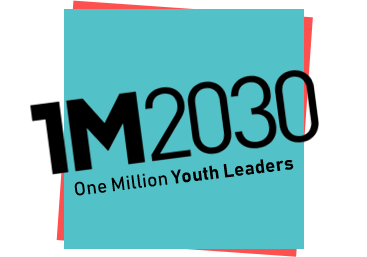1M2030 Story #12: Project Amara & Equitable Menstration
Group Article by Aahana, Anjali, Reva, Sayuri, and Surabhee
Hi! We are Project Amara and, together, we are one in a million! This is our story.
Four years ago, in 2016, we met in high school. We were asked to do a social impact project, something that would impact the community positively.
Our passion brought us together for women’s empowerment and sustainability, giving birth to the Project Amara.
Our story began with a cup. It looked intriguing, and we did not know how to use it. To find out more, we attended a session where a group of older women talked about the menstrual cup.
This was the first time we saw menstruation being talked about in a positive light; we laughed and shared stories.
We wondered how such a wonderful product had never crossed our paths.
To draw connections between the products currently used and their sustainable alternatives, we dived deep into the world of disposable single-use menstrual products. We saw the severity of the issue and realised that this information needed to be public knowledge. We wondered whether people would still use sanitary napkins and tampons if they knew what they were made of. Taking into consideration the amount of menstrual waste created and the health hazards of using such products, we felt it our responsibility to make sure all menstruators know the truth about them.
Every year in India, approximately 12 billion sanitary napkins are disposed of by less than 20% of the menstruating population (1).
On the other hand, menstruators who cannot afford such products turn to ash, leaves, cotton, paper, dirty cloth, etc. Sanitary napkins are promoted as a healthy alternative to these, which traps people in a toxic cycle of using hazardous products that poison the earth and their bodies.
We have a very Westernised notion of sustainability which systematically excludes lower-class groups when, in fact, these groups have been practicing sustainability for generations. One of our goals is to make sustainable products available to all. It is the use of sustainable products that will help millions of menstruators overcome period poverty.
Creating a dialogue about the social, political, and cultural nuances of menstruation was the starting point for Amārā. It creates spaces for growth and learning, to understand the relationships between the products and our bodies, our environment, our people. And that is our primary mission: to spread awareness about the existing issues surrounding menstruation and to find its solutions as a community. We wanted to start talking about periods, to break the taboo, and to rethink the notion that menstruation is impure.
Since 2016, we have conducted over 150 sessions in villages, urban slums, offices, schools, universities, housing societies, and more, thereby helping over 2,000 menstruators switch to sustainable menstrual products such as menstrual cups, cloth pads, and biodegradable pads.
The importance of sustainable menstrual products became apparent during the COVID-19 pandemic as well, when many were unable to access and afford menstrual products. Furthermore, without proper garbage disposal and collection systems and compact, interactional environments, synthetic sanitary napkins are clogging drains, creating hazardous waste, and posing a severe health risk to the entire communities.
We raised funds and distributed subsidised cloth pads in urban slums. Along with this, we also began conducting online sessions, training volunteers, and starting an internship programme. Through our work, we aim to address the UN's SDG 5 (women empowerment) and SDG 12, which look at resource and energy efficiency, sustainable infrastructure, and access to basic services, and a better quality of life for all. We work specifically on goals 12.4 ( environmentally sound management of chemicals and wastes throughout their life cycle and reduce their release to air, water, and soil), 12.5 (waste reduction through the 3 Rs), 12.7 (sustainable public procurement practices), and 12.8 (awareness of sustainable lifestyles and development) (2).
The Project Amara is a nonprofit organisation that aims to grow as a network and a movement across India.
We want to create a culture that is period positive and makes sustainable menstrual products equally accessible to everyone. Our goal is to bring about period parity in India—and ultimately, the world—and make it entirely sustainable and equitable in the long term. We see a world where menstruation is no longer weighed down with stigma, obligations, or restrictions. A future where open conversations can occur, whether it be with the people around the world or with your own body. A safe place for all menstruators to reconcile with menstruation the way they feel most empowering. A time when sustainable menstrual products are accessible and affordable and the freedom to choose which products to use is a strength. A future one step closer to an environmentally conscious society.
Ultimately we see a world as natural and dynamic as the blood we were born from.
Learn more at: https://theprojectamara.wordpress.com/
Instagram: @theprojectamara
Reference:
(1) https://www.wsscc.org/media/resources/tackling-indias-silent-problem-menstrual- waste
(2) https://www.un.org/sustainabledevelopment/sustainable-consumption-production/
Disclaimer: Any views or opinions represented in these articles are personal and belong solely to the author. The content provided by these authors do not necessarily reflect the opinions and beliefs and viewpoints of 1M2030, or its affiliates.
1M2030 Stories
1M2030 Stories is a weekly feature of a young leader and their unique story.
If you think you have a compelling story to tell, we invite you to send us your article to info@1m2030.org.


